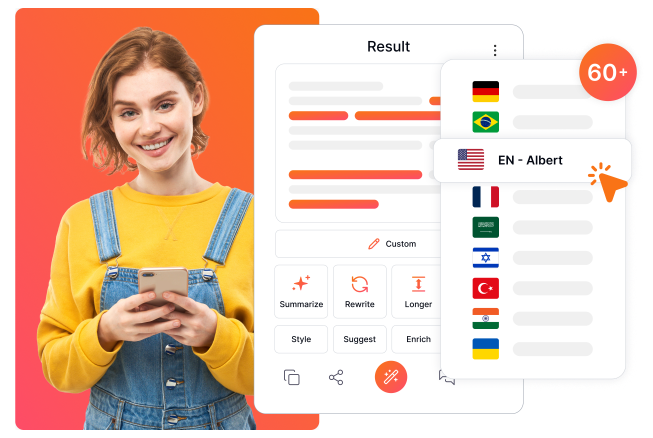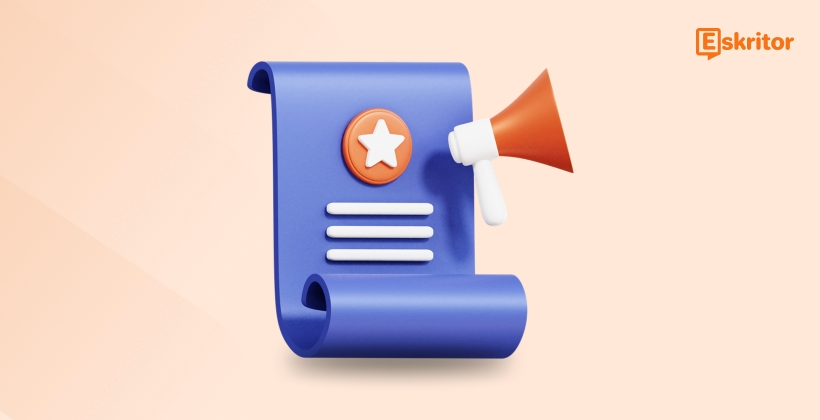The Role of AI in Modern Editing Practices
The Role of AI in Modern Editing Practices
Blog Article
The Future of AI Writing Technology Explained
Artificial intelligence (AI) publishing technology has developed fast in the last decade, reshaping the way we create and connect to prepared content. From grammar modification methods to AI-generated novels, the possibilities seem limitless. But wherever just is this engineering going? Let's discover the improvements, challenges, and possible potential of ai grammar checker.

How AI Writing Engineering Works Nowadays
At their core, AI publishing engineering utilizes Normal Language Processing (NLP) and machine learning. These technologies enable designs to understand, create, and improve human language. Instruments accessible today do well at projects like:
1. Material Development
AI has reached a spot wherever it may make complete blog articles, social networking sayings, and even news articles. Some models are designed for mimicking individual writing styles therefore efficiently that unique between AI- and human-written material has become significantly difficult.
2. Syntax and Model Idea
AI-powered publishing assistants don't just check for syntax and punctuation errors; in addition they provide suggestions to improve tone, understanding, and sentence structure, making complex writing accessible to an extensive audience.
3. Emotion Evaluation
AI can evaluate the emotional tone of a bit, allowing businesses to determine how their communications may resonate with readers. This is especially of good use in marketing and client interaction.
The Recent Tendencies in AI Writing Engineering
Several developments are surrounding another stage of AI-powered writing resources:
• Personalization
AI writing engineering is increasingly effective at tailoring content to individual preferences. Versions can conform to a user's writing model, ensuring the productivity feels authentic.
• Multilingual Abilities
Several AI tools are growing their worldwide reach by providing improved interpretation characteristics and help for multiple languages.
• Improved Research Features
AI tools today get the capacity to analyze great amounts of information and provide fact-checked, well-researched publishing in seconds, simplifying the procedure for specialists in industries like legislation, fund, and journalism.
What the Future Supports for AI Publishing Technology
1. Increased Imagination
While current AI is good at generating content, their creativity continues to be limited to habits within its training data. Future AI is not just expected to help but to produce unique, informative works that challenge human imagination.
2. Easy Effort
Imagine an AI that operates along with you in real-time, doing your phrases, completing stay edits, and even brainstorming ideas. AI publishing resources might shortly become co-authors, enabling imagination to flow uninterrupted.
3. Ethical and Available Design
With rising matter about plagiarism, misinformation, and error, designers will work toward more transparent AI training techniques and honest implementation. Potential instruments will more than likely present more extensive citations and actions to make certain accountability.
Difficulties and Factors
The development of AI publishing technology isn't without hurdles, including:
• Honest Issues

Who possesses content developed by AI? How do we assure AI-generated content is not distributing misinformation? These debates stay unresolved.
• Human-AI Balance
May AI match human imagination or totally replace particular roles? Several writers and artists be concerned about their relevance in a AI-driven world.
• Convenience Divide
Not totally all businesses or parts have similar usage of cutting-edge AI instruments, raising questions concerning the impact with this engineering on global inequality.
Adjusting the Way We Create
AI publishing technology remains in their infancy in comparison to its potential. Whether you are a student crafting documents, a material marketer targeting specific readers, or a novelist seeking enthusiasm, AI resources may continue steadily to revolutionize the writing process. The following decade claims breakthroughs that blend human ingenuity with machine intelligence, creating a potential where publishing is more effective, accessible, and impactful than actually before.
Report this page